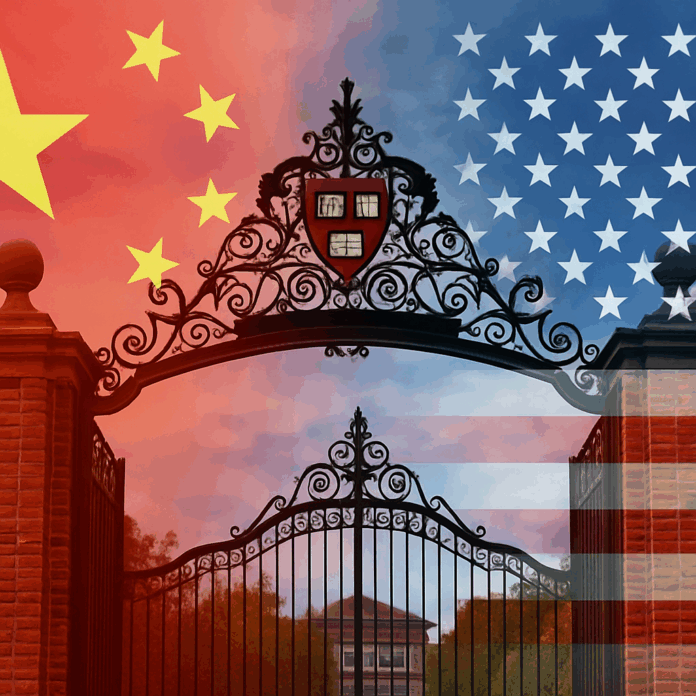A powerful government department is now looking at a well-known Harvard university. Officials are asking if this university may have broken U.S. laws that stop certain kinds of work with foreign groups.
Sanctions Law Meets Academic World
The focus is on a health insurance event held in China, which the university helped organize. That event may have included people from China who are not allowed to work with American groups.
This issue is not small. In the United States, there are serious rules called sanctions. These rules stop companies and groups from working with certain people, businesses, or even countries. The reason? Some of these people or groups may be linked to unfair business, security threats, or even spying.
Normally, these sanctions are used against banks, oil companies, or tech firms. But now, one of the most respected universities in the U.S. is under the microscope. This time, the question is: Should American colleges also be punished under the same rules if they connect with banned people?
A top-level government official has signed a request asking the U.S. Treasury Department to begin an investigation. The part of the department that handles such rules is called OFAC—the Office of Foreign Assets Control. If OFAC agrees, the university could face strong legal action. This may include large fines or even losing access to certain federal support.
Why This Case Feels Different
This is not a normal government review. Usually, officials do not target colleges when it comes to sanctions. But in this case, the government is treating a domestic academic institution almost like a foreign company that might have broken rules.
This could be the first time such a large American university is being considered for sanctions-related legal action. It raises a bigger question: Should universities be treated the same way as multinational businesses when it comes to foreign ties?
Some legal experts say this is a sharp turn from how things have been done in the past. They believe this kind of enforcement could make universities much more cautious about working with foreign countries—especially countries that have tricky relationships with the United States.
Even more interesting is the background of this case. The same university has already been facing heat over other unrelated issues. This includes how it handles protests, political speech, and global relationships. Some say this investigation may be part of a wider attempt to control or pressure institutions seen as powerful or elite.
No one from the university, the Treasury Department, or the State Department has agreed to speak about the issue. But documents seen by reporters show that the request for an investigation is already in front of the Treasury Department.
Impact Beyond One University
This situation could lead to many changes—not just for one university, but for all American schools that do international work. Thousands of colleges send students, professors, and researchers abroad every year.
Harvard Trained Officials from Sanctioned Chinese Paramilitary Linked to Uyghur Oppression
They also invite foreign speakers and attend global conferences. If this case goes forward, those schools may now need to double-check if any person or group involved in these events is on a U.S. blacklist.
If a university can be legally punished just for being at an event where a blacklisted person was present—even without any direct contact—it sets a very strict example.
It may also limit important international cooperation. For example, schools working together on medical research or climate science could feel nervous about continuing those partnerships. One mistake could mean they face penalties from the U.S. government.
But others argue that this kind of action is necessary. They believe that some American institutions are too open to working with foreign powers that do not follow international rules. For them, national security is more important than global networking. They see this investigation not as punishment, but as a warning: follow the rules, or pay the price.
This situation comes at a time when relations between the U.S. and China are already tense. There are trade disputes, technology bans, and military concerns in the background. Adding universities into that mix means that the competition between the two nations is now entering classrooms and campuses.
It is not clear yet whether the Treasury Department will go ahead with a full investigation. But the fact that the question is even being asked—did an American university break U.S. sanctions laws by taking part in a global event—shows how much the world has changed. Even academic work is no longer safe from political tension.
Ivy Battle! Trump’s $2.2B Slap Leaves Harvard Reeling Over ‘Un-American’ Actions
For now, the case remains open. But across the country, many universities are likely watching this story very closely. What happens next could shape how they plan their future international partnerships, and how they balance research freedom with government rules.


